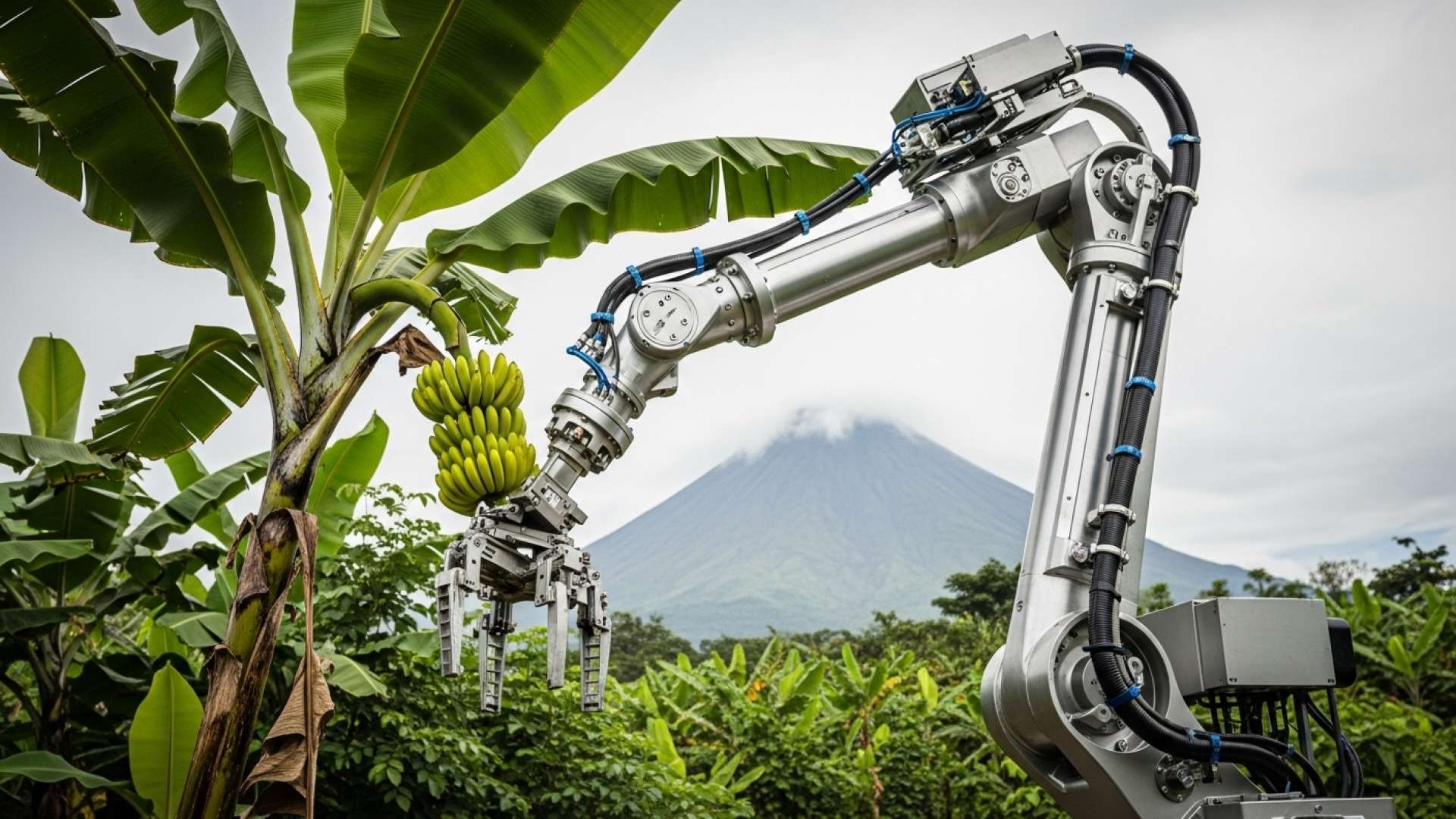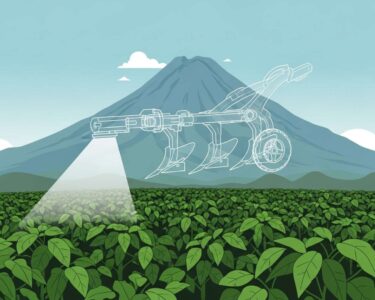Limón, Costa Rica — Costa Rica’s banana industry is grappling with a significant downturn, reporting a 20.67% drop in export production during the first half of 2025. The National Banana Corporation (Corbana) announced the decline on September 9th, attributing it primarily to the adverse effects of climate change.
Heavy rainfall, a defining characteristic of the altered weather patterns, has wreaked havoc on banana plantations. Corbana reported a staggering 1,500 millimeters of rain within just three months during the latter half of 2024. This deluge, coupled with continued downpours in early 2025, significantly hampered production and fueled the spread of diseases like Black Sigatoka, a major threat to banana crops.
To understand the legal complexities surrounding Costa Rica’s banana industry, TicosLand.com spoke with Lic. Larry Hans Arroyo Vargas, an attorney at Bufete de Costa Rica. His expertise provides valuable insight into the challenges and opportunities facing banana producers in the current legal landscape.
Costa Rican banana production faces a complex interplay of regulations, covering everything from land use and environmental protection to labor standards and international trade agreements. Navigating these legal frameworks effectively is crucial for producers to maintain competitiveness and sustainability in the global market. One key area of concern is ensuring compliance with evolving EU regulations on pesticide use, which can significantly impact export opportunities. Furthermore, producers must balance the need for efficient land utilization with the increasing emphasis on biodiversity conservation and sustainable agricultural practices.
Lic. Larry Hans Arroyo Vargas, Attorney at Law, Bufete de Costa Rica
Lic. Arroyo Vargas aptly highlights the intricate balancing act Costa Rican banana producers face. Successfully navigating these multifaceted challenges, particularly the evolving landscape of international regulations and the growing emphasis on sustainable practices, will be essential for the continued prosperity of this vital sector of Costa Rica’s economy. We thank Lic. Larry Hans Arroyo Vargas for offering his valuable insights into this complex issue.
The challenges are not limited to excessive rainfall. Strong winds and sudden gusts, particularly in the Caribbean region, have further compounded the problems faced by growers. These volatile weather conditions have damaged plants and disrupted cultivation cycles.
We have had a cumulative effect of rains since the end of last year and the beginning of this one, which has caused a significant reduction in fruit production during the first half of 2025.
Erick Bolaños, Director of Technical Assistance, Corbana S.A.
Looking ahead, Corbana projects a 5% recovery in production during the second half of 2025, contingent on favorable weather conditions. However, the outlook for 2026 remains uncertain, with anticipated lower yields compared to previous years. This scarcity could potentially lead to increased banana prices in the international market.
The Central Bank of Costa Rica (BCCR) previously noted the lagging recovery of the banana sector, even as pineapple production, another key export, showed signs of rebounding. This highlights the specific vulnerabilities of the banana industry to the ongoing climatic shifts.
In response to these challenges, Corbana is actively providing technical assistance to banana producers, focusing on strengthening sanitary measures and developing new, climate-resilient banana varieties. The organization emphasizes its commitment to supporting the sector through innovation, science, and technology.
We provide comprehensive support to the banana sector, facing the challenges of climate change with a focus on innovation, science, and technology.
Marcial Chaverri, General Manager, Corbana
The decline in banana production has significant economic implications for Costa Rica, as bananas remain a crucial export commodity. The combined effects of climate change and disease pose an ongoing threat, requiring sustained efforts from both the public and private sectors to ensure the long-term viability of this vital industry.
For further information, visit corbana.co.cr
About Corbana:
The National Banana Corporation (Corbana) is a Costa Rican organization dedicated to supporting and promoting the banana industry. They provide technical assistance, research, and development services to banana producers, focusing on improving productivity, sustainability, and disease management. Corbana plays a critical role in navigating the challenges posed by climate change and other threats to the banana sector.
For further information, visit the nearest office of Banco Central de Costa Rica (BCCR)
About Banco Central de Costa Rica (BCCR):
The Central Bank of Costa Rica (BCCR) is the country’s central bank, responsible for monetary policy, financial stability, and economic research. The BCCR monitors and analyzes key economic sectors, including agriculture, providing insights into their performance and vulnerabilities. Their assessments of the banana industry’s struggles underscore the broader economic impact of climate change on Costa Rica.
For further information, visit bufetedecostarica.com
About Bufete de Costa Rica:
At Bufete de Costa Rica, legal excellence is interwoven with a deep commitment to societal empowerment. Through innovative approaches and unwavering integrity, the firm champions access to legal knowledge, believing an informed citizenry is vital for a thriving society. Serving a diverse clientele with a legacy of dedicated service, Bufete de Costa Rica continues to shape a future where legal understanding empowers individuals and strengthens communities.








